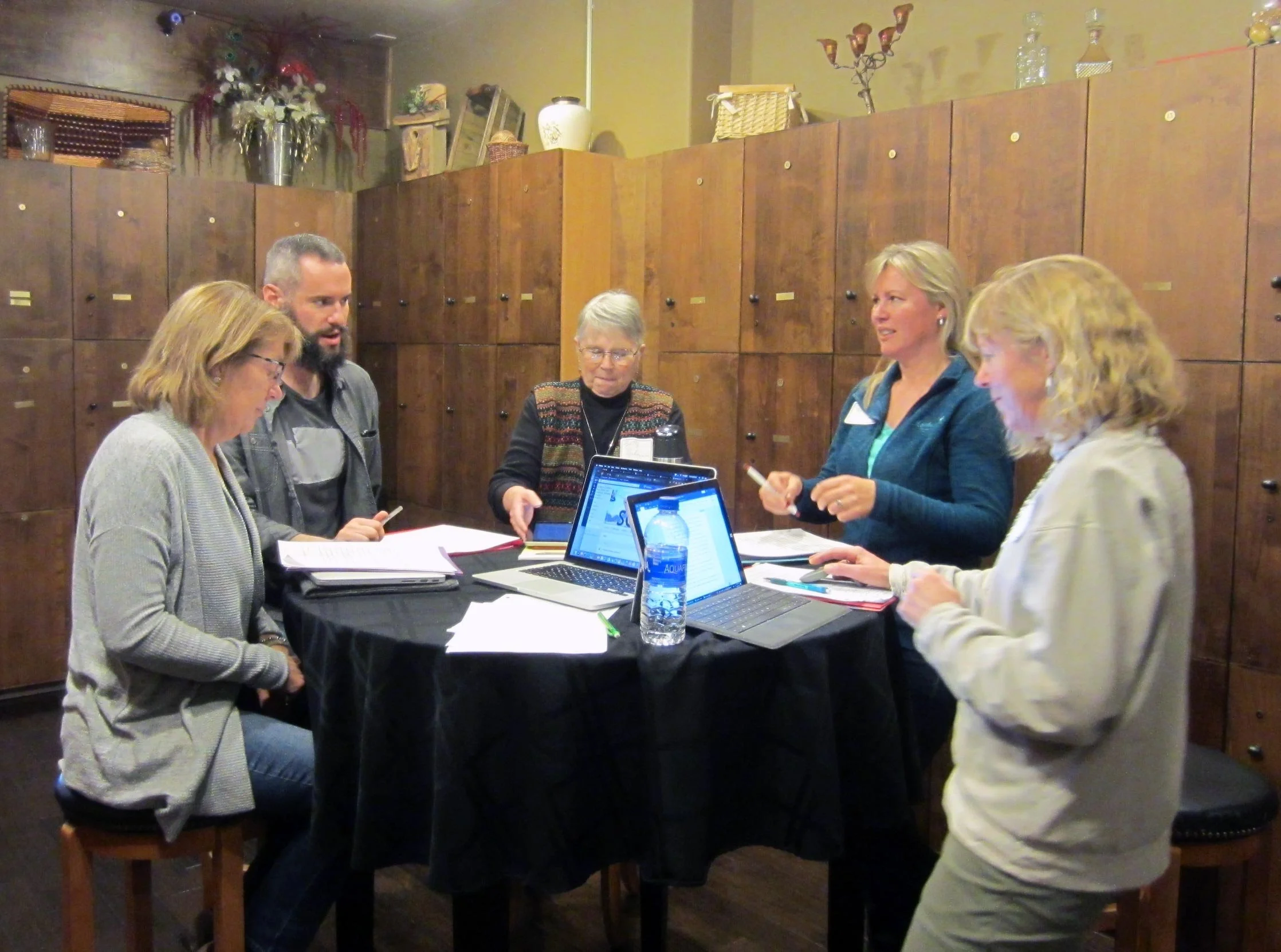The Purpose of Critique Partners
When non-writers ask me about my journey to become a published author, one of the questions is always something like, “How did you do this (i.e. get a book published) all by yourself?” Well, the truth is, I didn’t. Being an author is a solitary endeavor, but no one writes alone.
Photo Credit: J. Howeth
Without a doubt, authors live in their heads most of the time – alone, especially when sitting at their computers or with pen in hand - actually writing. Portrayed as romantic, writing is everything but. It’s hard and lonely work. Success is achieved via self-discipline. But there’s another aspect to being an author that is absolutely critical to success; it’s the sharing of one’s work with invested critique partners, which requires trust and a unique kind of fortitude.
For authors to trust this process, they must embrace two stages of bravery. The first stage consists of a formative kind of bravery; it is scary for writers to let their projects be read while in their initial drafts, still rough and unpolished. It can make a writer feel vulnerable and dreadfully exposed, and for me, always brings to mind the warning about being precious with one’s words – that is, do not become emotionally attached to your own writing.
And then there’s the second type of bravery that a writer must foster to be able to hear the feedback given by their partners. To be able to experience both kinds of bravery hinges on trust. (I’m envisioning a teeter-totter here – trust is the fulcrum while the board is being balanced by the two types of bravery at opposite ends; equilibrium is achieved through delicate and constant adjustment.)
This quote by George Eliot, “It is never too late to be what you might have been,” is my practiced reaction to critiques. When I take the time to listen to what my critique partners are saying to me and then act on it, I become a better writer. I can feel myself moving forward into who I didn’t realize I could be.
Now let’s be honest here, it can be scary to hear what people have to say about your current project, where it’s not working and even why. Sometimes you want to defend your work, you’re tempted to explain it; THIS is an “aha!” moment for a writer – when your ego becomes defensive and starts to come up with explanations as to what you’re saying or why or how - THIS is the moment to become very still and just listen – no interrupting, no arguing, no explaining. The very fact that a critique partner doesn’t understand what you’re saying is precisely why you need to listen to them. Your reaction to their bringing it to your attention is the clue that you need to step back and reevaluate your work.
When you can take in suggestions with an open mind; bravely listening to your critique partners, all while feeling the fear, your ability to respond to an objective appraisal gets stronger and stronger, like building muscle. This leads to resilience – and when acknowledged, makes you a better writer.
Related Posts:
A Writers Life: Critique Partner Relationships


